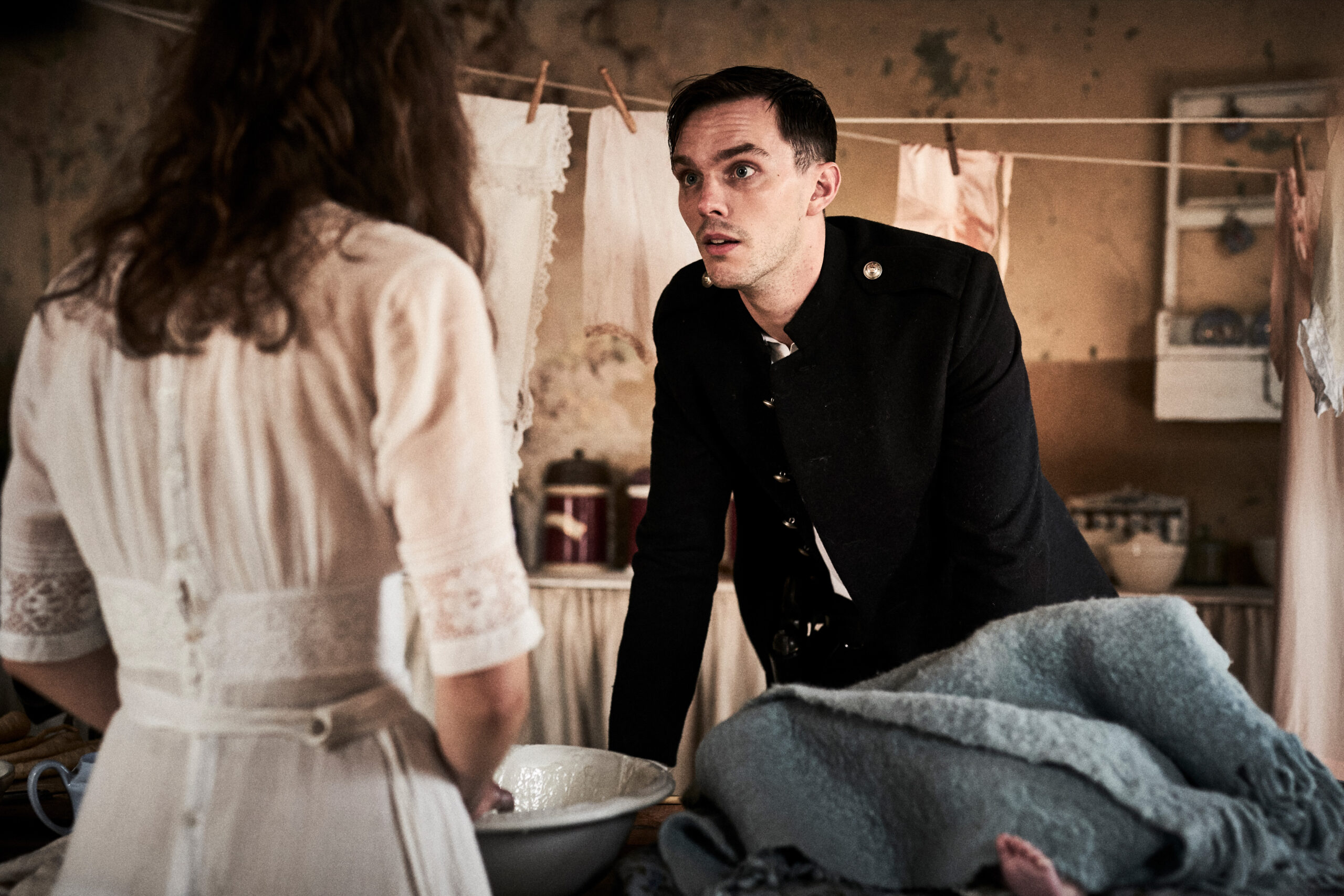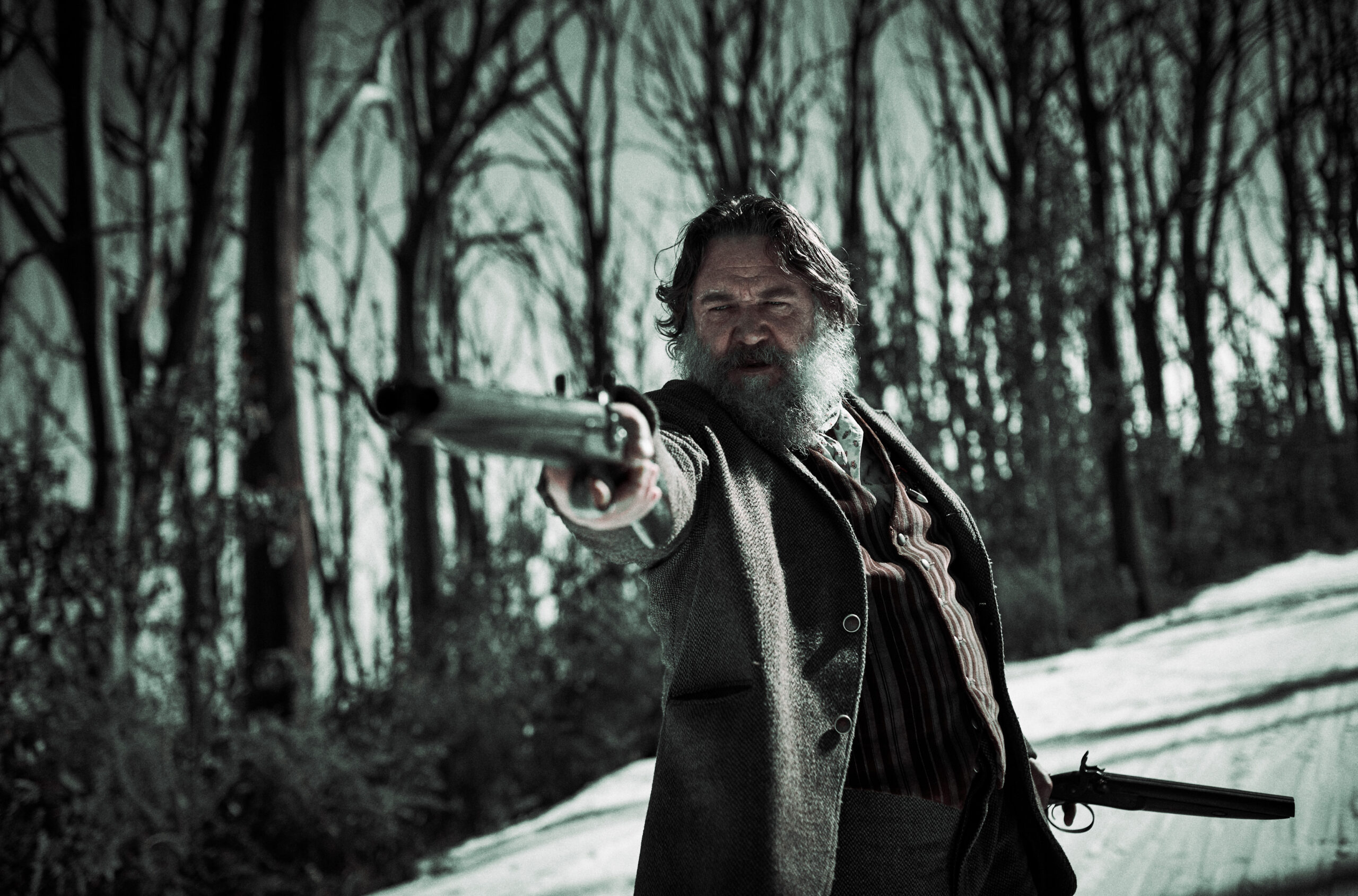There have been a fair few films made about Australian outlaw Ned Kelly, but it’s fair to say none of them have made much of an impression until now. Justin Kurzel’s new film may have it’s flaws, but it has an undeniable vitality and freshness to it that makes it impossible to ignore. Kurzel has faced criticism in the past for placing more importance on beautiful visuals than story or character. This might be true of Macbeth or Assassin’s Creed, but The True History Of The Kelly Gang is a definite breath of fresh air.
Based on Peter Carey’s novel of the same name, the story takes numerous liberties with the life of Ned Kelly. (played here by 1917’s George MacKay, with Orlando Schwerdt playing Kelly as a child.) The story is told with a definite punk aesthetic, as we are taken through his inauspicious beginnings, and meet a series of terrible role models who shape his adult personality. These include the brutish Sergeant O’Neill (Charlie Hunnam), grizzly robber Jack Power (Russell Crowe), and his insidious mother (Essie Davis) all of whom inform his legendary status as a self styled Robin Hood of the outback.
George MacKay is excellent as the eponymous outlaw, and gives an intense, muscular performance. It’s pretty incredible that he has emerged from relative obscurity to give such a fully realised, dangerous version one of Australia’s most iconic desperadoes. His Kelly is a coiled spring, full of built up resentment and anger. There’s a volatility to the character that is immediately apparent, and he does a great job in the quieter moments of showing his vulnerability, and that he isn’t as smart as he thinks he is.
Essie Davis is brilliant as Kelly’s incredibly toxic matriarch. It’s a difficult job, playing someone so selfish and mercurial who nevertheless still maintains that she loves her children, but Davis makes her plight understandable, even admirable. There’s a refreshing honesty to her character, simply not caring what people think of her, that makes her oddly human, if not likeable. Nicholas Hoult probably makes the biggest impression as the sadistic policeman, channeling a decadent Hugh Grant in his delivery. He’s charming one minute, chilling the next, especially in one scene involving him and Thomasin Mackenzie (also great). It’s a simultaneously menacing, tense, and macabrely funny scene, and sticks in the memory long after the film has ended.
Unfortunately the rest of the cast are more cameos than anything else. Russell Crowe gives an incredibly warm, lived-in performance as grizzly outlaw Harry Power. Threatening lawmen in one scene and gamely leading the family in a hilarious expletive laden song in the next. It looks like the most fun he’s had on film for years, but his appearance is all too brief. The same is true of Charlie Hunnam, who disappears before he’s made much of an impression. The members of Kelly’s gang don’t fare much better, and none of them really register as fully dimensional characters. It’s a shame they aren’t fleshed out more, as there is so much historical material on them. It feels like a missed opportunity, and makes the ending feel like a bit of an anticlimax.
The violence is shocking, with some of the more gory effects wisely placed in the background, almost out of focus. The final fateful shootout is beautifully constructed, with horrific detail and disorienting visuals all contributing to the overall chaotic effect. It’s just a shame that we don’t really know enough about these characters to particularly like or care about them. This is the main problem with the film. It looks stunning, and the actors themselves are all great, but there isn’t really anyone to root for. MacKay is incredible, but by the end his initially interesting character is reduced to just another madman with a gun.
It’s a beautifully made film for sure, and Kurzel makes striking, innovative use of the frame throughout. Shot in widescreen, there are several shots filmed through cracks in walls, foreshadowing the gangs use of armoured helmets. As the film goes on the aspect ratio narrows more and more, until it resembles the visor of the helmet. This also serves to increase the feeling of claustrophobia as the net closes around Kelly and his gang.
The True History Of The Kelly Gang isn’t perfect, with paper thin characterisation, inconsistent storytelling and too many loose ends. However, this remains the best cinematic depiction of the story of Ned Kelly by quite a way, and MacKay’s performance alone makes it worth a watch. Vibrant colours and dynamic filmmaking combined with some electric performances raise what might have otherwise been a fairly simplistic story into an anarchic, audacious film that feels weirdly contemporary despite the period setting









